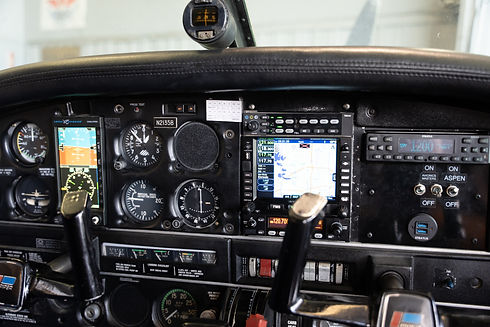
Instrument Rating Training in Dallas-Fort Worth
An Instrument Rating (IR) is an advanced certification that allows a pilot to fly under Instrument Flight Rules (IFR), navigating and operating an aircraft solely by reference to instruments rather than outside visual cues. This rating greatly enhances safety, proficiency, and flexibility by allowing pilots to fly in a wider range of weather conditions, including clouds, reduced visibility, and low ceilings. An Instrument Rating is considered one of the most valuable add-ons a pilot can achieve, as it not only expands flying privileges but also lays the foundation for professional aviation careers.
FAA Instrument Rating Checklist
1. Basic Eligibility
-
Hold at least a Private Pilot Certificate
-
Be able to read, speak, write, and understand English
-
Hold a valid FAA medical certificate
2. Flight Experience
-
Log 50 hours of cross-country time as Pilot-in-Command (PIC)
-
Log at least 40 hours of actual or simulated instrument time, including:
-
15 hours of instrument training with a Certified Flight Instructor – Instrument (CFII)
-
One long IFR cross-country flight of at least 250 nautical miles, including:
-
An instrument approach at three different airports
-
Three different types of approaches using navigation systems
-
-
3. Knowledge Training
-
Complete ground instruction covering IFR rules, navigation, charts, procedures, and weather
-
Pass the FAA Instrument Knowledge Test (written exam)
4. Proficiency Training
-
Learn and demonstrate:
-
IFR preflight planning and procedures
-
ATC clearances and compliance
-
Precision and non-precision approaches
-
Holding patterns
-
IFR navigation
-
Emergency operations
-
5. Final Test
-
Pass the FAA Practical Test (checkride) with an examiner, which includes:
-
An oral exam
-
An instrument flight test
-
